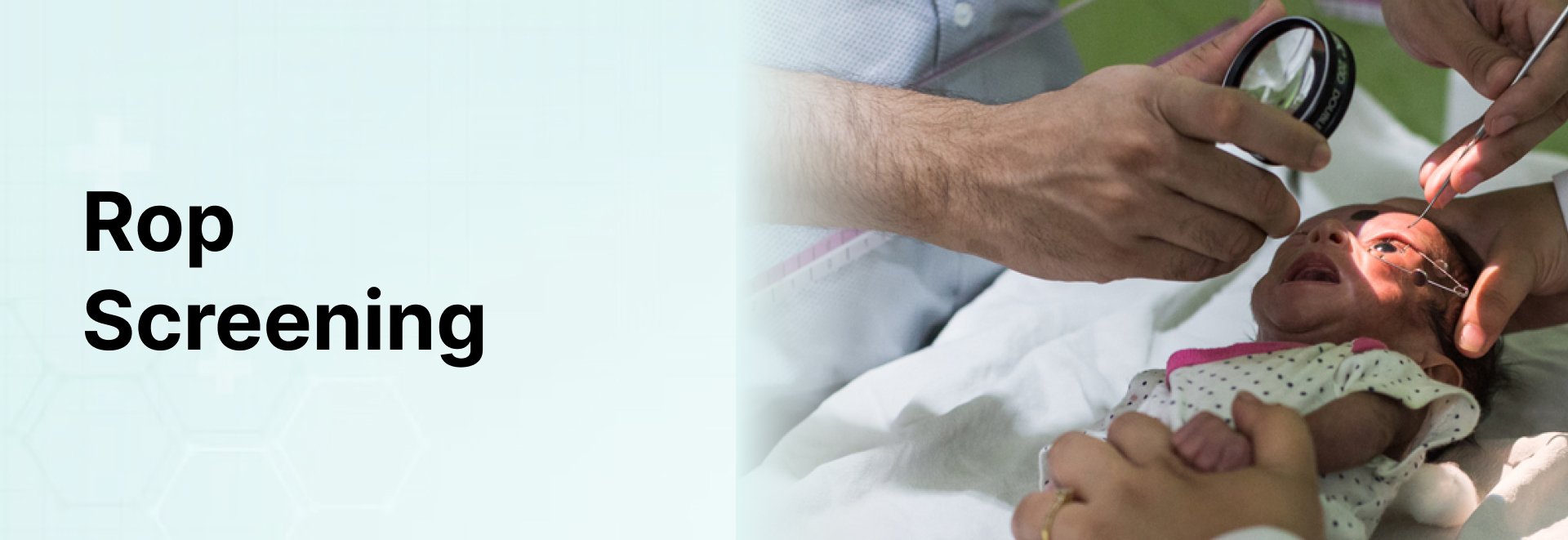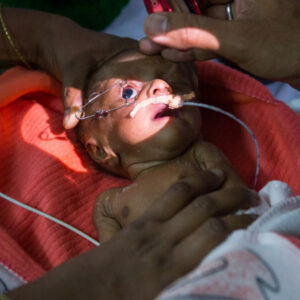
Rop Screening
Retinopathy of Prematurity (ROP) is an eye condition that affects the retina’s blood vessels. ROP is common in premature babies, affecting approximately 65% of babies, weighing less than 1251 g at birth. This condition is typically very mild and resolves on its own without the need for treatment. In a very few babies (usually the smallest and most premature) the ROP does not get better and proper ROP screening is needed. If left untreated, severe ROP can seriously impair a baby’s vision and can even cause blindness.
Causes Of ROP
A baby’s general condition may also influence whether ROP develops or becomes severe.
However, some premature babies with no serious illnesses develop ROP, whereas others who have been critically ill do not. Therefore it is necessary to screen ROP in all babies under 32 weeks.
Screening Of ROP
ROP screening is an eye examination performed by an ophthalmologist (or eye specialist) to detect signs of ROP. All babies weighing less than 1500 grams at birth or born more than 8 weeks prematurely will require at least one eye screening.

When Will The Screening Occur?
- If the ROP is mild, a follow-up examination will be required 1 to 2 weeks later. If the follow-up examination reveals that the ROP has not worsened, it will resolve on its own.
- More severe ROP will necessitate an earlier re-examination, typically within a week.
- In a few cases, the ROP may be severe enough to necessitate treatment. If your baby requires treatment at any point, the ophthalmologist will consult with you to explain what will happen.
- The first screening examination will be performed when your baby is between the ages of 4 and 6 weeks. Some babies will only require one examination, while the majority will require at least two.
- Eye drops are placed in the eye about an hour before the examination to dilate the pupil and allow the retina to be seen. The retina is examined by the ophthalmologist using an ophthalmoscope (or sometimes a camera) gently placed on the surface of your baby's eye. To get a better view of the retina, they may also use a speculum (to hold the eyelid open) and an indenter (to rotate the eye).
© Triage Healthcare All rights reserved — Made by Rittz Digital


